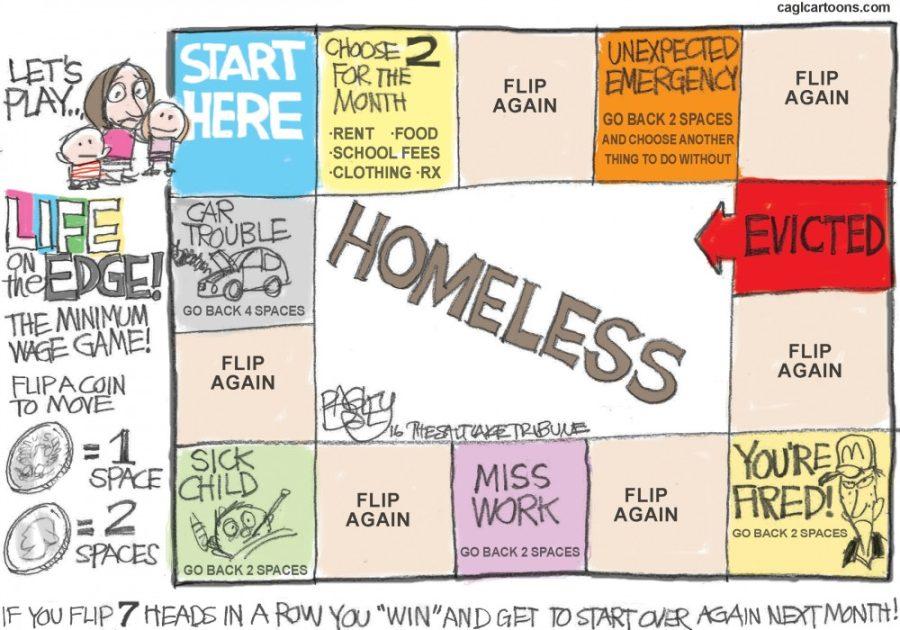Voting ‘yes’ on Proposition 206 to increase minimum wage will benefit Arizona, bringing a better quality of life to those struggling to live on minimum wage.
The minimum wage in Arizona is currently at $8.05, which is just above the national average of $7.25. With the passing of Prop 206, the minimum wage in Arizona would be raised to $10 by the end of 2017, and raised to $12 incrementally until 2020.
As part of the benefit of Prop 206 passing, not only will the minimum hourly wage be raised, but eligible employees will also have the right to earn paid sick leave from their employers.
As we’ve seen over the last 10 to 20 years, the cost of living has been inflated, leaving us feeling as though we’re turning our pockets out just for necessities. These days, not even $100 goes very far when purchasing the basic things we need to live.
RELATED: How to vote if you’re a UA student
The last federal increase in minimum hourly wage was in 2009, when minimum wage was raised from $6.55 to $7.25.
A person working a 40-hour work week year round in a minimum wage job is expected to make approximately $15,000 a year. Minimum wage workers make just enough to stay above the poverty line in the U.S.; however, staying above the poverty line doesn’t necessarily mean making enough to make ends meet.
In addition, working mothers would benefit from the increase in wage, and the ability to gain paid time off. Paid sick days would allow mothers to go into the workforce knowing they have the ability to take a day off to care for a sick child.
Paid sick days would also allow Americans to take days off when they are sick, instead of being overworked or coming to work when they’re sick to avoid being fired.
Increasing the hourly wage would impact the lives of over 75 million Americans, or 60 percent of the American workforce, according to a U.S. Board of Labor Statistics study from 2014.
It’s not so much that we’re asking to give a raise to people who work these jobs as we are asking to give what was once rightfully paid out to employees with an hourly wage. Politicians have struggled to pass legislation for an increase in minimum wage due to myths surrounding the consequences of the increase.
RELATED: Proposition 206 attempts to raise the minimum wage to $12 by 2020
One of the most common arguments against raising minimum wage is it will cause small businesses to cut jobs and leave Americans out of work. In addition, businesses have argued bankruptcy presents too much of a threat to increase their wages.
However, increasing the minimum wage will not bankrupt businesses. In many cases, the hourly wage of minimum-wage workers makes a small dent in the profit of a large national corporation, PBS reported.
Large national corporations have been making most of the negative noise, arguing that increasing the minimum wage will be bad for their business. Small businesses might see more significant change in their businesses, but rising businesses will likely see little change.
Recent research shows that most of the businesses will adjust over time to the wage increases with potentially increased profits from the greater productivity of their employees, according to the New York Times.
Based on the idea that minimum wage hasn’t been adjusted properly to the inflation of the dollar, large national corporations are actually getting away with paying their employees less than they once were.
If Prop 206 were to pass this election season, it would benefit working-class America. Raising the hourly wage would take the burden off the shoulders of Americans working overtime just to make enough to have a meal and pay rent.
Increasing the minimum wage might have steep initial stages, but will benefit the working class long term. It will better serve a greater part of the American workforce, and allow a better quality of life for citizens of Arizona, and in the long run, the nation.
Follow Leah Gilchrist on Twitter.









